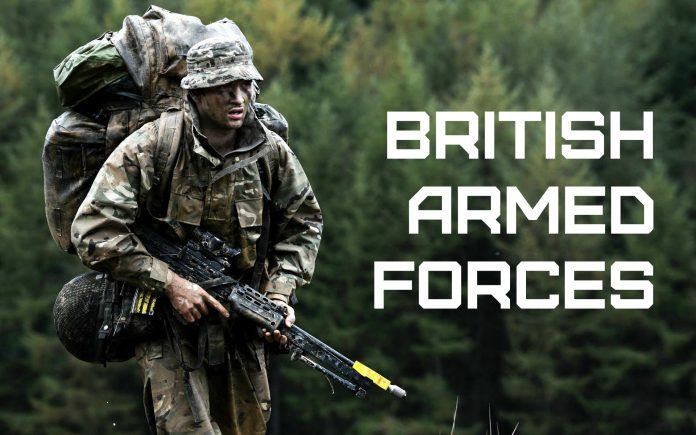There is sometimes a tendency to take Britain’s armed forces for granted. Thankfully, it has been many years since we have been at war with an enemy that has physically threatened Britain’s shores. The number of people old enough to remember the Second World War diminishes with each passing year, yet those dark days are still recalled as Britain’s finest hour, when the UK’s armed forces stood up against the seemingly overwhelming forces of fascism and triumphed.
Conflicts Around the World
In the decades since 1945, Britain has been involved in numerous conflicts around the world, but the image of the British soldier in more recent times has been of struggles in foreign lands that seem to have little connection to our everyday lives at home. Certainly, we hear stories of acts of great heroism – and our politicians tell us that operations in Iraq, Afghanistan and elsewhere are vital for protecting British interests and security – but today’s young people are perhaps justly cynical of the claims of politicians. The activities of Britain’s armed forces can seem remote and irrelevant, or worse.
Paying Tribute
It is a fact, however, that the British armed forces are still a source of pride, and in fact many among the younger generation do realise this. Sales of poppies in the run-up to Armistice Day remain high. In 2015-16, the Royal British Legion raised over £44m in poppy sales nationwide, compared to £36m in 2010/11. While last year, research found that a third of young people aged 18 to 24 were reluctant to wear a poppy, we should celebrate the fact that a two-thirds majority wanted to pay tribute to those who had made sacrifices to defend their country.
Supporting Those Who Served
Those of us wishing to do more to support veterans can look to the charity Help for Heroes, which aims to secure better facilities for British servicemen and women who have been injured while serving their country. Help for Heroes has been campaigning and raising funds for over ten years and is now one of the best loved and supported charities in the UK, backed by the Ministry of Defence and Britain’s biggest newspapers. As well as running four recovery centres for wounded personnel and providing direct financial support for veterans and their families, Help for Heroes also works with other charities and organises fundraising activities.
Multiple Operations
The British Army is currently involved in numerous operations worldwide, protecting the interests of the UK and the free world with a range of deployments that cover anti-terrorism efforts, humanitarian aid, peacekeeping missions, and combating the international drug trade that has blighted so many lives. It is currently active in Europe, Africa, the Middle East, Indonesia and America, and maintains a strong strategic presence in both Cyprus and Gibraltar.
Operations include assisting in the transition process in Afghanistan, where British troops are advising Afghan forces, and assisting African states in combating terrorism, human rights violations, humanitarian crises and wildlife poaching, as well as undertaking peacekeeping missions in South Sudan and Somalia. Britain also maintains an advisory and support position in Iraq, where it is part of a 67-member global coalition committed to defeating Daesh forces. Closer to home, around 800 British troops are part of NATO’s Enhanced Forward Presence in the Baltic states, strengthening Euro-Atlantic security against possible Russian aggression.
Visible Presence
Pride in Britain’s armed forces has increased in the UK in recent years, as uniformed troops are more commonly seen in peacetime roles in their home country. The army’s role in organising the 2012 Olympic Games increased the peacetime profile of the services, and soldiers have also been deployed to help secure flood defences and organise evacuation procedures in Britain’s flood-hit communities over the last decade.
Of course, the ever-present threat of terrorism has also increased public awareness of the vital role that the armed forces play, with military intelligence and bomb disposal squads being deployed at home as UK troops tackle the causes of terrorism worldwide.
We have also seen how Britain’s armed forces are ready to step in at a moment’s notice to aid in disaster relief around the world, such as helping with humanitarian efforts in the Caribbean following the devastation caused by Hurricane Irma.
While Britain’s armed forces are always ready to defend, their wider role involves making the world a safer place and preventing conflict before it happens. Their essential support in disaster situations alone, both in the UK and elsewhere, should make them a source of pride for British people living at home and abroad. Add to that their continued role as peacekeepers and defenders of the British people, ever-ready to make the ultimate sacrifice, and it is clear why Britain’s pride in its armed forces will never diminish.





